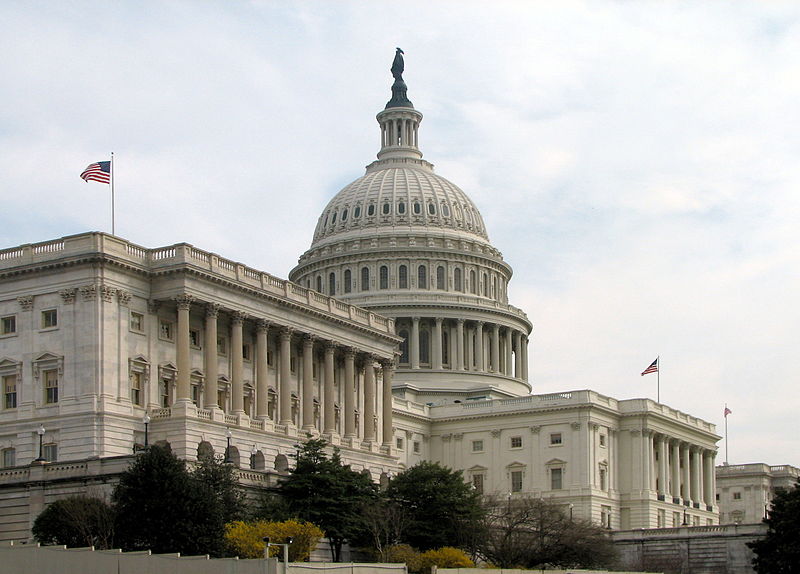Views expressed in opinion columns are the author’s own.
When I was in middle school, my biggest pet peeves were: my diminutive stature, being asked to write more than a paragraph for homework and, most of all, the Senate filibuster. When I learned Senate Republicans could stifle President Obama’s legislative priorities with only 41 votes, I was filled with a fiery preteen rage that has never completely abated. It was so unfair, I declared with a nasally alto, that the party with a clear mandate from the American people couldn’t govern.
In high school, I took this grievance to the screen, creating an anti-filibuster documentary with some friends for a C-SPAN competition. I cheered when former majority leader Harry Reid removed the filibuster for most executive nominations. But when the Democrats filibustered now-Justice Neil Gorsuch — and Mitch McConnell went nuclear, stripping the filibuster requirement from Supreme Court nominees — I was uneasy.
My discomfort was purely ideological, of course. Gorsuch is an originalist, abiding by a judicial philosophy guided by the original intent of a law, and I am not. In my mind, seminal Supreme Court decisions such as Brown v. Board of Education and Loving v. Virginia are incompatible with an originalist world view. The Supreme Court is worse off with Gorsuch on the bench. But the nuclear option improved the Senate.
The filibuster was conceived by accident. In 1805, Vice President Aaron Burr, fresh off the murder of Alexander Hamilton, decried the Senate’s complicated rules. He suggested the senators remove a rule called the “previous question motion,” which was used to cut off debate. The gullible senators agreed, unaware of the future chaos they had wrought. A few decades later, some senators discovered the profound consequence of Burr’s suggestion: They could keep talking, and no one could stop them. But at first, the filibuster was used sparsely.
In response to a spat with Senate isolationists, President Woodrow Wilson pushed a cloture rule through in 1917. With cloture, senators can end debate with 67 votes (later lowered to 60). The cloture rule produced the modern “silent filibuster.”
The popular conception of a filibuster is far more romantic than the reality. Many folks think of Mr. Smith Goes to Washington: one senator, holding forth on a matter of principle until he can no longer stand. But most filibusters feature no speech at all. In a silent filibuster, 41 senators simply decline to vote for cloture, and a bill cannot be brought to a vote.
The silent filibuster wasn’t popularized for several decades. When President Lyndon Johnson had a Democrat-controlled Senate, the Republican minority filibustered only 17 times; when Obama had a Democrat-controlled Senate, McConnell’s Republican caucus filibustered 307 times in the first five years of his presidency. The filibuster has become a de facto supermajority requirement: Any controversial bill requires 60 votes to pass.
This was never supposed to happen. The Constitution requires a supermajority in select situations, such as presidential impeachment and treaty ratification. The Constitution doesn’t demand a supermajority to pass legislation, confirm Supreme Court justices or approve executive branch appointments.
The framers were appalled by the prospect of a supermajority standard. Hamilton declared that “its real operation is to embarrass the administration, to destroy the energy of government and to substitute the pleasure, caprice or artifices of an insignificant, turbulent or corrupt junta, to the regular deliberations and decisions of a respectable majority.” It’s tragic (and a bit funny) that a man who forcefully opposed the filibuster was murdered by Burr, who then proceeded to create the filibuster.
Our system makes it very difficult to do anything. As you probably remember from social studies, each branch of government checks the others. The Senate checks the House, the Executive checks Congress and the Judiciary holds the other branches accountable. Highly polarized political parties make it more difficult for the federal government to function. If one party controls the House, the Senate or the presidency, it can freeze government.
Now, add the filibuster. If a political party has at least 41 seats in the Senate, it can veto popular legislation. In contemporary national politics, a political party must control the presidency, a majority of the House and a supermajority of the Senate to pass its agenda.
A functioning government should be able to address pressing issues whenever they arise. Our system is usually dormant, waiting for one party to muster a large enough mandate to govern. Our Constitution created a deliberate and constrained federal government. That’s valuable. But the filibuster isn’t a necessary power check; it’s the tyranny of the minority.
This brings us back to Gorsuch. A few weeks ago, I argued that the best chance Democrats have to pass progressive legislation is to use all tools available to block Trump’s agenda. For that reason, I respect the Democrats who filibustered Gorsuch. But some of the tools available to the minority, such as the filibuster, are harmful no matter who is in power.
The Trump presidency will end, ideally. And when that cloud passes, the United States deserves a government in which the majority can govern. Someday, if we’re lucky, the Senate will kill off the filibuster for good.
Max Foley-Keene is a freshman government and politics major. He can be reached at maxfkcap2016@gmail.com.



